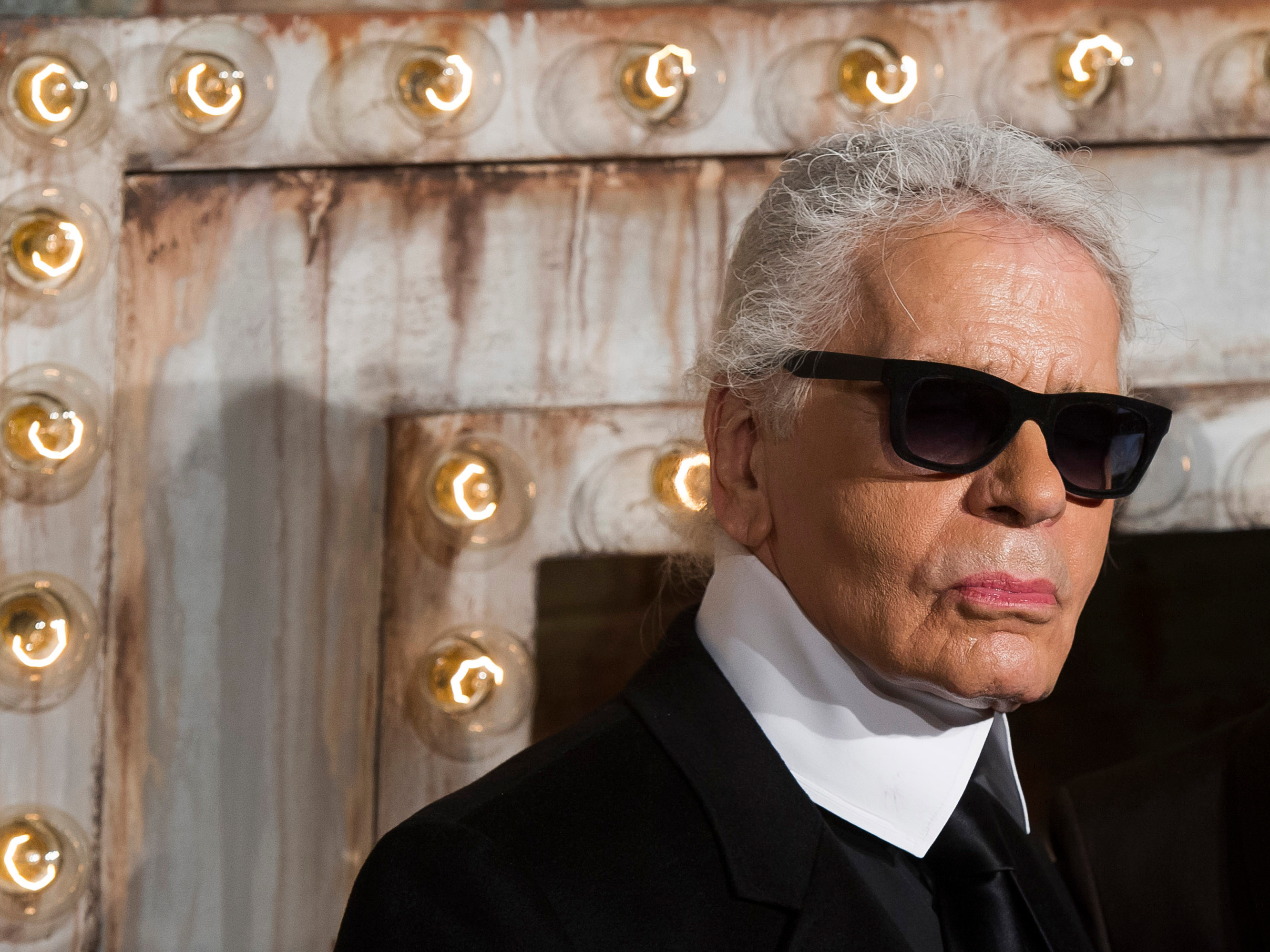- Fashion icon Karl Lagerfeld died in Paris on Tuesday at the age of 85. The cause of death is unclear.
- The fashion designer was most famous for his work as Chanel’s creative director.
- Throughout his career, Lagerfeld majorly impacted the fashion world.
- Not only did he work for a variety of brands including Balmain and Fendi, but he also helped now world-famous models enter the industry.
The fashion world is mourning the loss of Karl Lagerfeld, an iconic fashion designer widely known for his work at brands including Chanel and Fendi.
The designer died in Paris on Tuesday at the age of 85. The cause of his death is unclear.
Throughout his nearly 65-year career, the German-born designer made a major impact on the fashion industry, creating revolutionary clothing lines and introducing new models to the world.
From his first design created for Balmain, to his most recent work with models like Bella Hadid, here are 12 ways that Lagerfeld changed the world of fashion forever.
Lagerfeld entered the fashion industry after winning a design contest in 1954.

Lagerfeld was 17 years old when he entered The Fashion Design Competition, a contest held by the International Wool Association.
Not only did he ended up winning the contest, but his coat design was produced by Pierre Balmain, who took Lagerfeld on as his assistant.
He went on to prove that making a name for yourself in the fashion industry requires years of hard work.

After working alongside Balmain, Lagerfeld gained even more experience in the industry by working as the art director for designer Jean Patou.
But he wasn't afraid to take some risks and leave major designers when he felt he needed to.

In 1962, Lagerfeld became one of the first fashion designers to work freelance. The practice is extremely common today, but was revolutionary when he took the leap.
During his time as a freelancer, the German designer created clothing and accessories for the likes of Mario Valentino, Chloé, and shoemaker Charles Jourdan.
Lagerfeld has largely influenced the designs of Fendi since 1965.

He was originally hired by the luxury brand to work on the company's fur designs.
In his first year at the company, Lagerfeld created unconventional designs that included rabbit and squirrel fur, both of which had never been used before in fashion. He also incorporated fur, which was typically worn for formal occassions, into everyday wear.
He continued to collaborate with the brand up until his death, working as the creative director for Fendi's womenswear and fur lines.
In 1975, Lagerfeld became the first fashion designer to create a perfume without having his own fragrance label.

He created the scent while working for Chloé, where he stayed until 1978. The perfume was also called Chloé, and said "Parfums Lagerfeld" on the bottle.
Of course, Lagerfeld wasn't the first to introduce perfume to the fashion world. The connection can actually be traced back as far as 1921, when Coco Chanel released her first scent, Chanel No. 5.
But what makes Lagerfeld stand out is that, unlike designers who worked under the name of a large brand, he became the first to attach his full name to the product.
After being named Chanel's art director in 1983, Lagerfeld saved the fashion house from a financial collapse.

At the time, fashion fanatics were starting to turn away from the classic brand in favor of more modern looks and designers. Especially after Coco Chanel died in 1971, the company was heading towards a fate of brands like Balenciaga, who started to fail once their founders were no longer in place.
But Lagerfeld was determined to change that.
The designer tackled the challenge by taking Chanel's classic pieces and modernizing them.

For example, he incorporated tweed into the upcoming grunge style, and placed the brand's monogram on unexpected items, such as flashy belts and jewelry.
Lagerfeld also famously shifted the brand's focus from fragrances to fashion.

"When I took on Chanel, it was a sleeping beauty. Not even a beautiful one. She snored," Lagerfeld said in a 2007 documentary called "Lagerfeld Confidential."
"So I was to revive a dead woman," he continued.
The famous Chanel monogram likely wouldn't exist if it weren't for Lagerfeld.

Today, many Chanel designs are emblazoned with two interlocking letters: "CC."
The monogram, which was designed to represent the brand's creator, Coco Chanel, was first created by Lagerfeld in the early '80s.
In addition to his work as a designer, Lagerfeld was also a highly-regarded fashion photographer.

By 1987, Lagerfeld was spending nearly as much time working behind cameras as he was behind a desk creating designs.
Not only did the designer shoot his own fashion campaigns, but he also published his photographs in books such as "Off the Record."
Lagerfeld became the first designer to collaborate with H&M.

The designer collaborated with the fast-fashion brand in 2004 to create a collection of 30 pieces.
The entire line sold out in minutes, and led H&M to collaborate with a variety of other designers including Balmain and Moschino in following years.
Many of the world's most famous models can attribute at least some of their success to Lagerfeld.

Lagerfeld first worked closely with models of the '80s, such as Linda Evangelista and Claudia Schiffer.
In more recent years, the designer continued to take people under his wing and give them spots in their first-ever Chanel fashion shows, including Cara Delevingne and Bella Hadid.
- Read more:
- 17 of Karl Lagerfeld's most iconic and controversial quotes
- Karl Lagerfeld owned more than 1,000 of his iconic high-collared shirts, and he helped design them himself
- Karl Lagerfeld famously pampered his cat. Here's what Choupette's lavish life is really like.
- Karl Lagerfeld refused to retire up until his death at age 85

